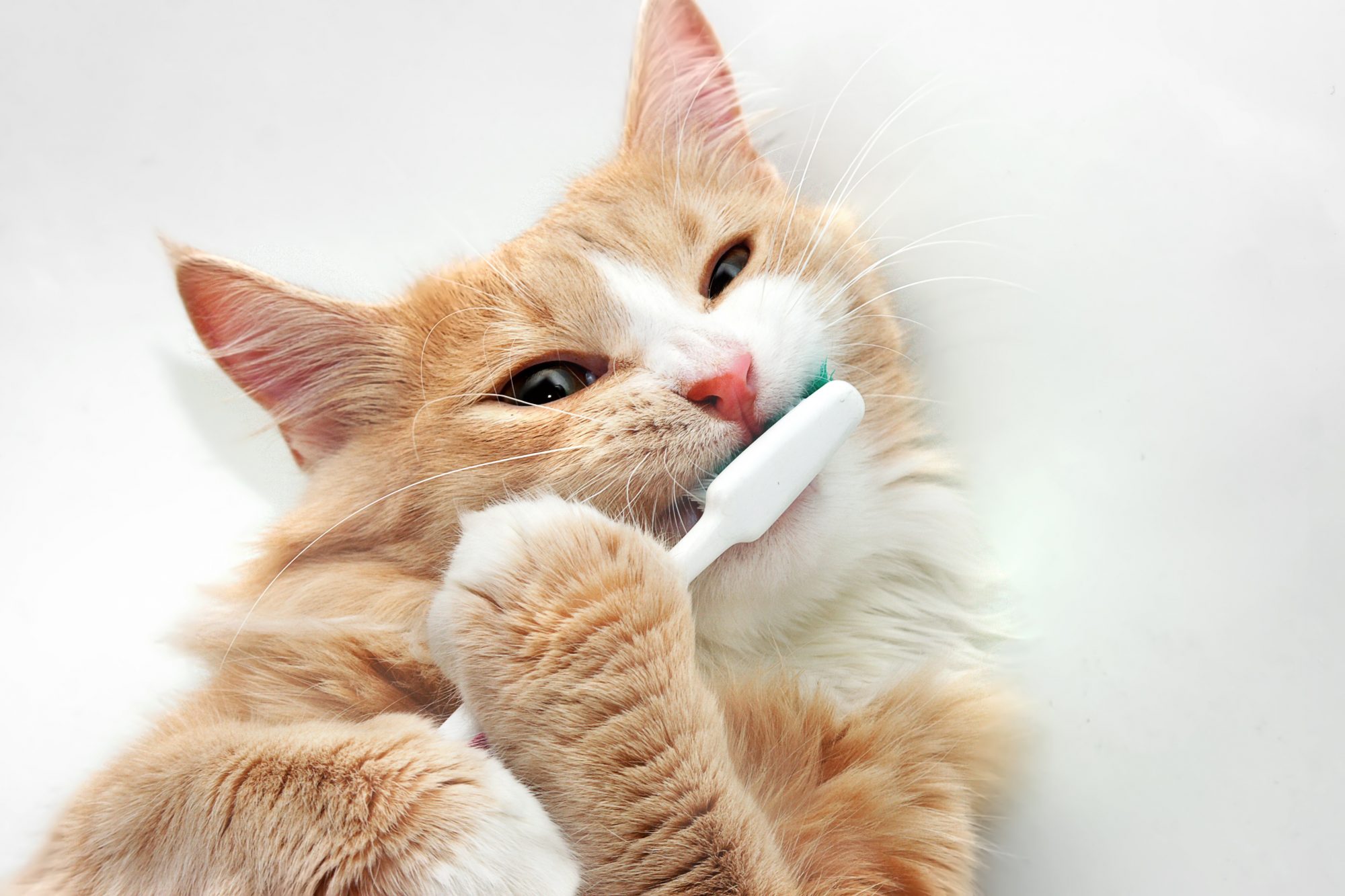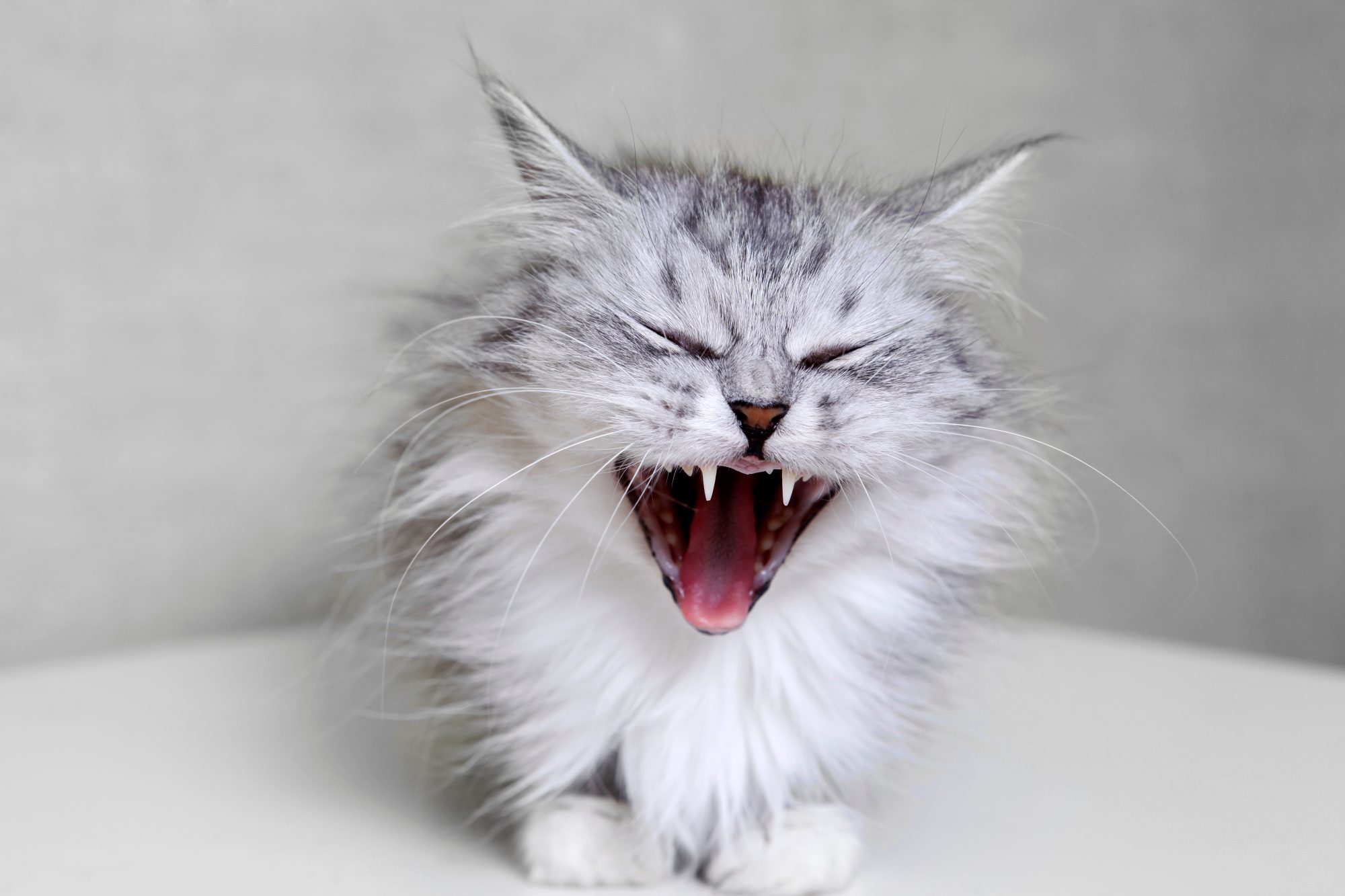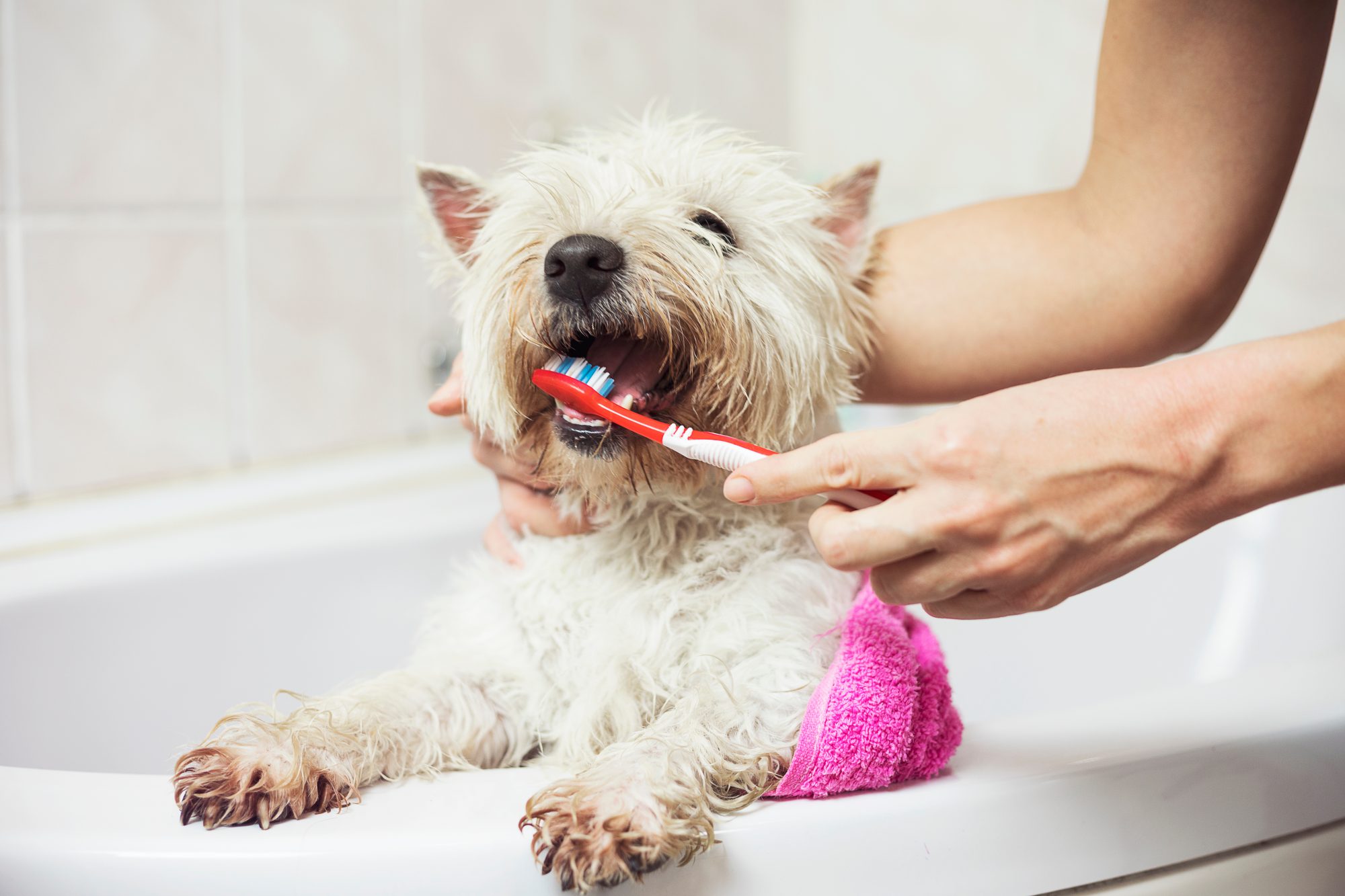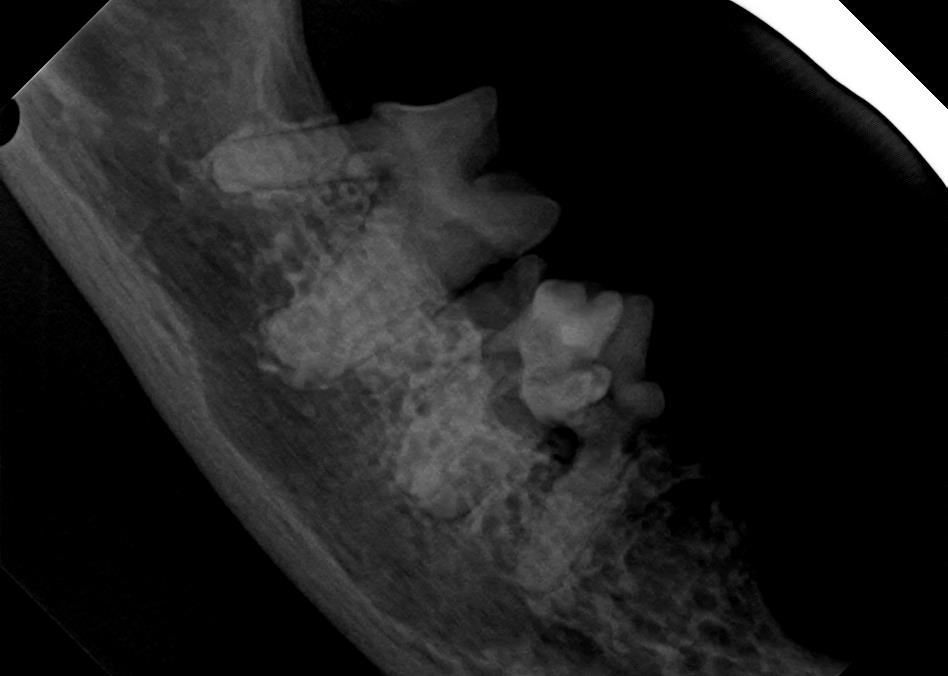Pet Dental Month Facts: Did You Know?

by MANDI BROADBENT, CSR
Every February, animal hospitals and animal brands around the country celebrate National Pet Dental Month!
Created by the American Veterinary Medical Association (AVMA), Pet Dental Month is an effort to educate the public about the importance of oral health for your pet’s overall wellbeing. Since its creation, National Pet Dental Month has been a yearly call for millions of pet owners to stop into their vet and check on the dental health of their four-legged friend.
It’s important to remember that proper dental care is just as vital to your pet’s health as it is to your own. Neglecting your pet’s oral hygiene can lead to a mess of medical problems including gum disease, bad breath, tartar build-up, and tooth loss. If left unchecked, it can even lead to heart disease, lung disease, and kidney disease! Whoa.
But what exactly IS good pet dental care?
That’s where we come in! Lincolnshire Animal Hospital wants you to remember that good oral health and hygiene starts at home. Knowing what to keep an eye on and what to maintain will help you keep your pet’s mouth happy and healthy for years to come!
SMILE Fact:
More than 70% of pets show some degree of periodontal disease by the age of 3.
What that means is that 8 out of 10 dogs will begin to show signs of periodontal disease at a relatively young age. It’s a good idea to get into the habit of checking the color and condition of your pets teeth/gums regularly, if not daily, to monitor for signs of trouble. If you notice red, irritated gums or dark staining on the teeth, it’s time for a dental check with your vet!
SMILE Fact:
Adult dogs have 42 teeth and adult cats have 30 teeth.
Wow! That’s a whole lot of teeth to take care of! Puppies and kittens usually start to sprout their baby teeth, also called deciduous teeth, between 3 and 8 weeks of age. Puppies will get around 28 deciduous teeth while kittens usually only have around 26 deciduous teeth. You can expect adult teeth, or permanent teeth, from both dogs and cats starting around 3-6 months of age.

SMILE Fact:
Dental disease isn’t our only concern.
Believe it or not, your pet’s teeth and gums actually aren’t our only concern when it comes to the state of your pet’s mouth. When the mouth and teeth begin to coat with bacteria, a substance called plaque forms. When that plaque calcifies, or hardens to your pet’s tooth, tartar develops. Once tartar begins to build, it leads to gum irritation which allows for the perfect environment for bacteria to thrive.
“Eventually, the inflamed gums pull away from the teeth, creating pockets that trap more bacteria and food particles. The gums bleed, the roots of the teeth may become exposed, teeth may become loose, and your pet may feel pain when eating. If the bacteria enter the bloodstream, they can create problems for organs such as the heart, liver, and kidneys.”
NAVC, 2017
SMILE Fact:
Brush, Brush, Brush! Don’t forget to brush!

Just like with your own mouth, brushing your pet’s teeth is the most effective prevention against dental disease. We recommend brushing your pet’s teeth as often as possible, and getting them used to the process early on. We understand that might not be easy, but the more you can brush the better! Brushing your pet’s teeth at a young age will help them be more accustomed to having their mouth handled by humans, too. Make sure you use a pet safe toothpaste, as human toothpaste can contain xylitol and be toxic to your pet. Lincolnshire Animal Hospital sells special pet toothpaste at the hospital, or you can find it at any pet retail store.
If you are unable to brush your pet’s teeth at all, there are a wide variety of other at home dental care products. From water additives, to treats packed with plaque-fighting enzymes, fighting dental disease at home has never been easier.
SMILE Fact:
Bad “Dog Breath” isn’t normal.
Did you know that dental disease can actually be pretty painful, too? Mouth and tooth sensitivity, reluctance to eat hard food, foul odors, swelling in or near the mouth, excessive drooling, or irritated gums can all be signs of periodontal disease. If you’re worried about your pet, or question the health of your pet’s mouth, it’s time for a dental check-up!
SMILE Fact:
The problem isn’t always obvious to see.
Often times, pets are painful in places that are difficult for us to see with our eyes . That’s where X-rays come in. Dental radiographs, commonly called X-rays, allow us to see below the gum line and to the “root” of the problem. We use a state-of-the art dental X-ray machine to get a precise view of your pets’ mouth so we know exactly where the concerns lie.

Did you know that dental procedures are performed in our hospital multiple times a week?
At Lincolnshire Animal Hospital, you can be rest assured that your pet’s dental care is in good hands. Our doctors and veterinary technicians perform a wide range of dental procedures all week long, and are happy to help you with any concerns. While under anesthesia, your pet’s teeth will be inspected, cleaned, polished, and treated with fluoride to strengthen the enamel. At discharge, our technician will sit down with you and explain exactly what was done and how best to maintain the health of your pet’s mouth moving forward. Ideally, we like to see our patients once a year for a proper dental cleaning to make sure their mouth is nice and healthy!
Wait…Lincolnshire Animal Hospital offers a dental discount?
You bet! Bring your pet in for a FREE dental examination with one of our skilled veterinary technicians during the month of February and receive a 10% Smile Discount on dental services**. Don’t wait – book your pet’s dental exam today!
Questions? Call (847) 634-9250 to speak with a receptionist.
**subject to change. Smile Discount offer(s) valid for 30 days from the date of dental examination. Smile Discount offer is open to all Lincolnshire Animal Hospital patients year-round with a current annual examination and vaccinations on record (unless otherwise approved by veterinarian). Free dental exam offer ends 02/29/2020.

